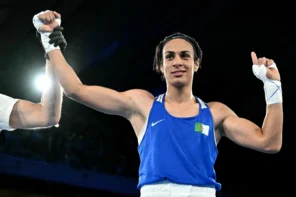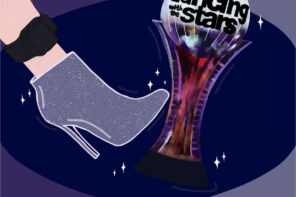Content Warning: This article deals with sensitive topics such as racism, colorism, and sexual abuse.
I first encountered the world of racial fetishization during my brief stint on Tinder last June. That low-stakes, medium-reward dating app that we all know and love seemed like the perfect place for me to explore the dating scene. It was also, as I soon discovered, the perfect place for many men to explore their potential for racism.
Each morning, I would wake up to an aggressive amount of inquiring “What’s your race?” texts paired with a wealth of heart-eye emojis. This duality of violation and flattery was extremely confusing. Upon revealing my mixed ethnicity to my Tinder suitors, I would be praised for being “different” or “interesting,” and yet the only thing they knew about me was my mixed race identity. When I was younger, I would’ve found the comments gratifying, simply because they indicated that someone had taken an interest in me. However, now that I am older, I’ve seen that these compliments are the subtle forms in which racial fetishization manifests. It is a form of racism in which hurtful stereotypes camouflage as compliments and praise.
Racial fetishization, broadly speaking, is essentially an attempt to categorize people based on their race. It’s the idea that if someone can determine your race, they can put you in a certain category of how you will perform sexually. Not only does this perpetuate nasty stereotypes, but it also minimizes individuality. Instead of your partner actually getting to know your sexual preferences, they choose to classify you based off of your ethnicity. These stereotypes may differ among minority groups: East Asian women are viewed as submissive, South Asian and Middle Eastern women as bizzare and alluring, Latina and Black women as strident and aggressive. The list goes on. For mixed people, this fetishization is portrayed as exoticism.
My very physical traits, personhood, and the intricacies of my DNA are what invite hyper-sexualization and fetishization.
In an article published in 2019, Maya Gittelman describes exoticism as “a manifestation of white supremacy designating something as ‘other’ but non-threatening, unfamiliar but tameable, bizarre but seductive, seductive in its bizarreness.” A mixed person’s identity is the epitome of this duality between strange and familiar: an intoxicating combination for some. A certain proximity to whiteness inspires desire. We are seen as approachable minorities, as an attainable other. Men would find me intriguing because I am different, yet many would also find comfort in my whiteness and inherently my distance from the racialized part of me. My very physical traits, personhood, and the intricacies of my DNA are what invite hyper-sexualization and fetishization.
Our physical features, however, can also be a privilege. The term colorism was coined by Alice Walker as the “preferential or prejudicial treatment of same-race people based on skin color.” Colorism is often presented as only within a minority group, i.e. a favoring of light skin over dark skin within cultural bounds. Yet, the term can apply much further than these boundaries. Our society discriminates against darkness because it indicates distance from whiteness. This discrimination is extremely present; it follows that many mixed people, including myself, benefit from a “dilution” of our otherness.
My physical attributes give me a privilege that many other minorities cannot claim. Yet, it nonetheless inspires the intrusion of others.
I am half South Asian and half white, and thus the problems that I face as a light-skinned person aren’t comparable to the colorism that monoracial minorities face. Indeed, I am not followed around in stores like my father. I am not targeted in TSA random checks, and I am not the recipient of nervous stares from the police. I have never been subjected to a distinct hatred due to my brownness, and for that, I am grateful. My physical attributes give me a privilege that many other minorities cannot claim. Yet, it nonetheless inspires the intrusion of others.
I have skin that tans easily in the summer but lightens easily in the winter, and I have hair that can range from straight to curly on a daily basis. My nose is long—a distinctly Eastern nose—yet the rest of my face doesn’t compensate for it. I am often an enigma to others and therefore sustain a long list of unsolicited questions. This curiosity, although sometimes well-intentioned, can become exhausting.
Today, this hyper-sexualization and fetishization of mixed race people has unfortunately become the norm. A disproportionate amount of mixed women experience sexual violence compared to other minority women. The 2010 National Intimate Partner and Sexual Violence study found that mixed race women experienced rape, physical abuse, and stalking by an intimate partner at a rate of thirty-two point two percent, a rate second only to American Indian/Alaska Natives at thirty-seven point five percent.
Even still, minority and mixed women are not portrayed in the #MeToo movement as survivors. Their stories are not being heard precisely because they are being obscured by this culture of fetishization and hyper-sexualization. We can point to society’s unsettling obsession with mixed race children on social media. There are thousands of Facebook groups and Instagram accounts dedicated to praising mixed children for their “light eyes” and “soft hair,” (i.e. their distinctly Eurocentric traits). Currently, the Instagram account @mixedbabiesig has two hundred nineteen thousand followers. Instagram tags such as #KardashianKids or #BiracialBabies are commonplace. For mixed people, fetishization starts early and chases us forcefully throughout life.
Although seemingly minimal, the comments that mixed people endure—also known in more academic terms as microaggressions—are simply one way for racism to materialize. I’ve been told, for example, that “mixed chicks are freaks,” making me feel as though my value is provided solely by how “exotic” I am to others. Any time I go out, men like to play the riveting game of “guess her race” as a method of flirting. These men think that if they’ll be able to label me, they will be able to categorize my identity. But there’s a clear difference between trying to impress me and reducing me to a sexual object because of my ethnicity.
Racial stereotyping, fetishization, and hyper-sexualization are means to reduce my personhood.
And we have seen this all before — it is racism in sheep’s clothing. Truly, it is a method of belittling our culture and minimizing our personhood. Having to justify my relationship with my family just because I look different from them isolates me. Uninvited fascination with my ethnicity makes me feel like a shameful obscenity. The praise for my proximity to whiteness makes me look down upon my brownness. Racial stereotyping, fetishization, and hyper-sexualization are means to reduce my personhood.
But truthfully, mixed race people don’t need others to tell us that we are exceptional. Our multiculturalism provides us with a unique and deep understanding towards others. It provides us with curiosity to explore differences. The very discrepancies within our DNA grant us unique flexibility and perspectives. Our identity represents plurality, and that is something that no man on Tinder, no intrusive stranger, and no abusive partner can ever change.








